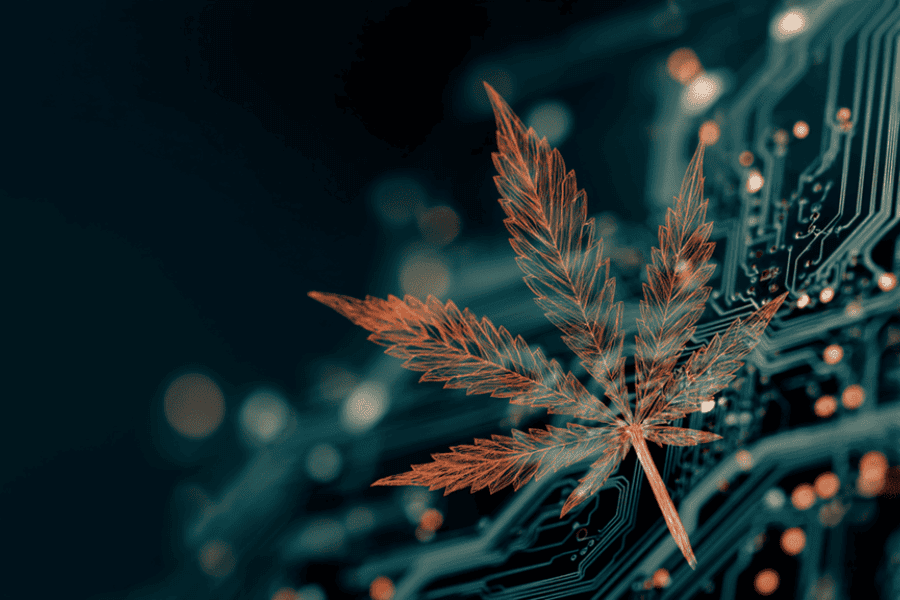What are synthetic cannabinoids?
- Funcaps
- Blogs about cannabinoids
- 11 Jul 2025
- 1views
- Reading time: 4 minutes

Synthetic cannabinoids, also known as ‘K2’ or ‘Spice’, are artificially designed substances that bind to the same cannabinoid receptors as natural cannabis. They have a similar effect to THC and CBD. Synthetic cannabinoids are usually used in liquid form on plant material or in vaporizers. Because they are chemically different from cannabis, they can be distributed as legal cannabis alternatives under current legislation. Not all synthetic cannabinoids are legal in the Netherlands.
Origin of synthetic weed
Synthetic cannabinoids were originally developed in special laboratories. Here, their effects were studied for medical purposes. This was mainly because the substances THC and CBD in cannabis can have a pain-relieving effect on the body. Synthetic variants are a stronger version of CBD and THC. They have great potential for healthcare, but also have their pitfalls. Nowadays, these cannabinoids are mainly used recreationally.
The effect of synthetic cannabinoids
Synthetic cannabinoids act as full agonists. This means that they bind to a receptor in the body and activate it completely. The so-called ‘CB1 receptors’ in the brain are activated more strongly with synthetic cannabinoids than with THC from natural cannabis. This makes the effects more powerful and increases the risk of poisoning.
When a receptor is fully activated by synthetic cannabinoids, all kinds of things happen in the body. It causes greater relaxation and pain relief, but can also suppress or disrupt the transmission of stimuli in the nervous system. This can lead to cardiac arrhythmia and loss of consciousness. In addition, some synthetic cannabinoids also affect other systems in the body, which can lead to harmful effects on the nervous system.
Legality
Since July 2025, Dutch legislation has been further tightened. The Opium Act has been expanded to include so-called group prohibitions (List IA). It is therefore no longer possible to buy synthetic cannabinoids, as this category is also included in the new Opium List. Producers are still trying to develop new variants (analogues) to circumvent the law, but the new rules make this much more difficult. The possession, manufacture, sale, and import of existing synthetic cannabinoids is completely prohibited.
Their use of synthetic cannabinoids in the Netherlands
In the Netherlands, approximately 1% of people who go out have used a synthetic cannabinoid at some point. This is relatively low when compared to other substances used at parties and celebrations. This low percentage is mainly due to the fact that regular cannabis is available for purchase in coffee shops. In countries where cannabis is not tolerated, people are more likely to switch to synthetic cannabis.
A lot of research is still being done into the effects of ‘spice’. Research laboratories test new variants for safety and strength. Based on the research results, it can be determined whether a particular synthetic cannabinoid should be made legal or illegal.

Advantages of K2 Spice
The biggest advantage of artificial cannabinoids is their medical potential. The active ingredients in cannabis, CBD and THC, are known as painkillers. Because synthetic cannabinoids are stronger and have the same effect in lower doses, they are often used for medical purposes. CBD oil in particular can normally provide significant pain relief for sick or terminally ill people. Low doses can also relieve feelings of nausea. There are also many studies that show that cannabinoids can help people with Parkinson's disease and panic attacks. In the right amount, the active ingredients stop or reduce uncontrollable tremors. The effect of synthetic cannabinoids is usually much stronger than that of regular cannabis strains. This makes it a cheaper and more effective remedy for users.
Disadvantages of K2 Spice
Because most synthetic cannabinoids are much more potent, they can cause unpleasant side effects if used incorrectly. An incorrect dose or reaction to this substance can lead to nausea and cardiac arrhythmia. The use of cannabinoids is also strongly discouraged for people who already suffer from mental disorders. This can otherwise cause anxiety attacks, hallucinations, paranoia, or psychosis.
As with all drug-related substances, there is also a risk of addiction. Prolonged use can lead to tolerance. When attempting to stop, withdrawal symptoms such as excessive sweating, headaches, and insomnia can quickly arise.
Chemical variations
Because there are so many different variations of synthetic cannabinoids and new variants are regularly being discovered, legislation often lags behind. This often means that there are still plenty of lesser-known cannabinoids appearing on the market. Their effects and impacts are often not yet well understood. New variants are sometimes not detectable by standard drug tests. This means that these substances can easily be abused by various parties. It is therefore important to inform yourself in advance about the different types of synthetic cannabinoids. For medical use, it is best to seek advice from your doctor.











